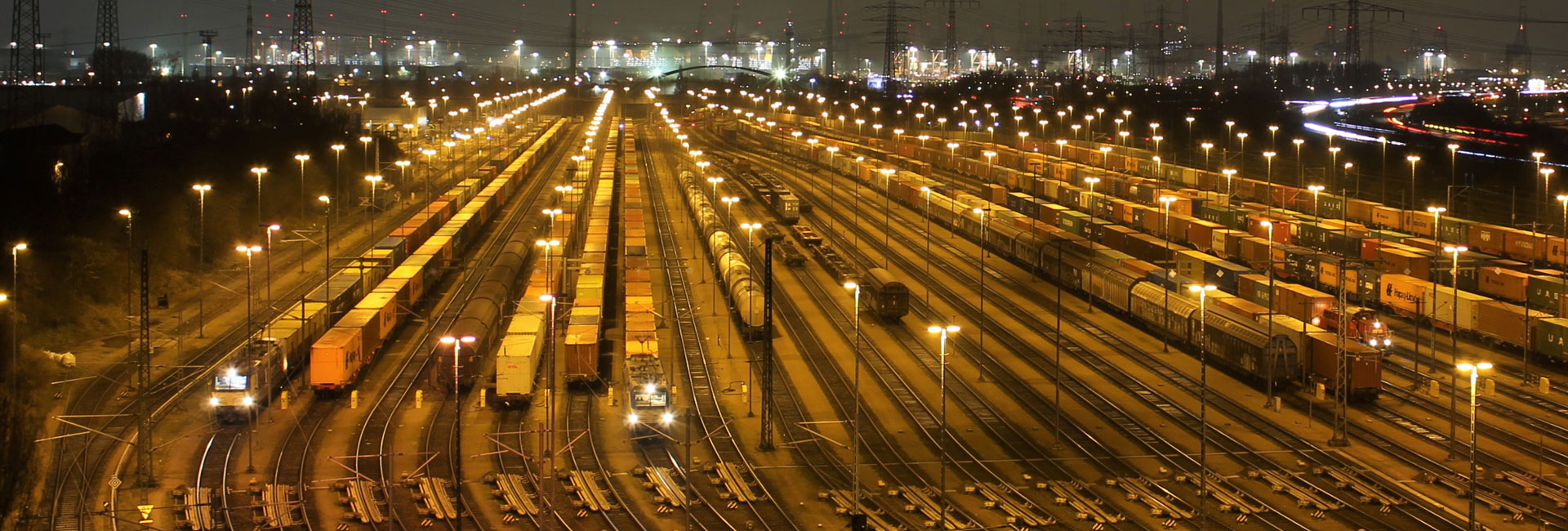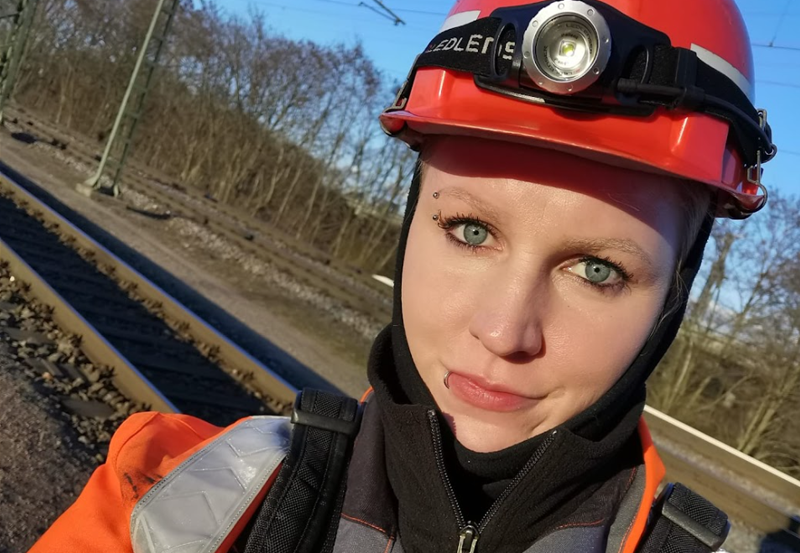"Port staff must possess specialist expertise"
The port is the backbone of the national economy in Germany, said Sönke Fock, Chief Executive of the Hamburg Employment Agency ...

This means that from the quay-wall to the point of destination enormous expertise is required to control, carry out and optimize freight transport by rail. This is where German Rail’s DB Cargo comes into action: As Europe’s leading rail freight company, it is also one of the most important rail operators in the Port of Hamburg, ensuring environment-friendly rail transport in seaport-hinterland services.
A special role is played here by Waltershof marshalling terminal. It is at the very heart of DB Cargo’s Hamburg rail freight operations. The DB Cargo colleagues on the spot work in a very concentrated fashion, ensuring the shunting engines and freight railcars are always in the right place at the right time. This in turn ensures that trains leave the port punctually, requiring real teamwork and precision.
Among their colleagues they are known as the engine driver’s ‘third eye‘. Every day marshalling controllers like Roxana Schlegel ensure seamless freight handling at the Hamburg terminals. They support the engine personnel with both expertise and practical assistance. In 2019, Roxana started as a career changer and, despite the physically demanding work, feels very much at home in her job. For example, her everyday work includes coupling and uncoupling of railcars that subsequently form new trains. “Here, it’s a question of technique,” she says, since in order to separate the railcar, each time she has to lift a coupling weighing some 20 kilos. However, this should soon be a thing of the past. Going forward, the ‘Automatic Digital Coupling’ should ensure that railcars can be coupled up without manual labour. Recently a train set out for a test run right across Europe equipped with ‘Automatic Digital Coupling’. Roxana Schlegel and her colleagues also have to shunt freight trains up to 700 metres into the terminals, since there is no possibility of turning them. This facilitates the locomotive already facing in the right direction for the return journey. However, this is not enough for the young marshalling controller. She wants to move up to become a shunting engine driver. To achieve this, she is starting an internal DB Cargo in-service training course.

Among other things that Roxana Schlegel and her colleagues discover from Stefan Holst is what train has to be where, and when. He is the Waltershof planner, acting as an interface between marshalling staff, other rail operating companies, customers, terminals and Hamburg Port Railway staff on duty. “It’s an enormous puzzle,” he says. “We see when and where, which train, train segment or individual railcar has to be positioned, as well as when a train should arrive or depart. If one link in the chain is unpunctual or malfunctioning, we immediately have to counteract it.” He particularly appreciates the collaboration in the Port of Hamburg: “We use direct lines of communication, always looking for potential mutual support – including across the range of rail operating companies, without any kind of competitive thinking,” states the planner. It is precisely such interaction among numerous players that facilitates the high performance of each individual one. Thanks to the Port Railway’s all-inclusive software solution, all companies involved in handling in Hamburg, additionally have the same information status. Stefan Holst is also striving to make a career at DB Cargo. Through a twoyear talent promotion programme, he is currently gaining work experience in management.
"If one link in the
chain is unpunctual
or malfunctioning,
e immediately
have to counteract it."
DB places great significance on both vocational and in-service training, with regular courses and training days for its staff. Since, only as an attractive employer can you ensure long-term success. The change in many professions caused by digitalization is seen by DB Cargo as an opportunity to reshape them. Consequently, the need for new abilities and skills in everyday working life has grown enormously in recent years. With its ‘HR Future Lab’, German Rail is therefore investigating how occupational profiles are going to change going forward and, for example, what measures have to be planned in recruiting and vocational training.
Fabian Wylenzek, head of recruitment for Region North, is a part of this initiative. He explains that for the future of DB it is essential to recognize change early. The team from the ‘HR Future Lab’ is Stefan Holst, Dispatcher at Waltershof railway yard „It‘s like an enormous puzzle.“ © DB Cargo Roxana Schlegel, marshalling controller
Marcputting its faith in the expertise of its operative staff. In addition, trend experts are comparing actual occupational profiles with future expectations. This leads to a calculation of which measures are needed, and their implementation. “This means, for example, that with our job offers, we can go directly into the skills and/or expertise required that are going to play a more important role going forward,” explains Wylenzek. Where completely new occupational profiles emerge from the Future Lab’s research, according to Wylenzek, DB Cargo will for example be able to immediately react, checking out the potential for creating a new vocational training programme. All this will then be worked out in workshops with the relevant specialist operative services.
Going forward, everyday working life at DB Cargo will be shaped especially by automation and digitalization. For both Roxana Schlegel and Stefan Holst, this will mean a new range of tasks, such as for example servicing equipment and software, or working with ever-increasing data volumes. With investments in human resources and training, DB Cargo wants to strengthen ‘rail’ as a mode of transport, making a decisive contribution to the transition in mobility.
„For the future
of DB it is essential
to recognize
change early.“